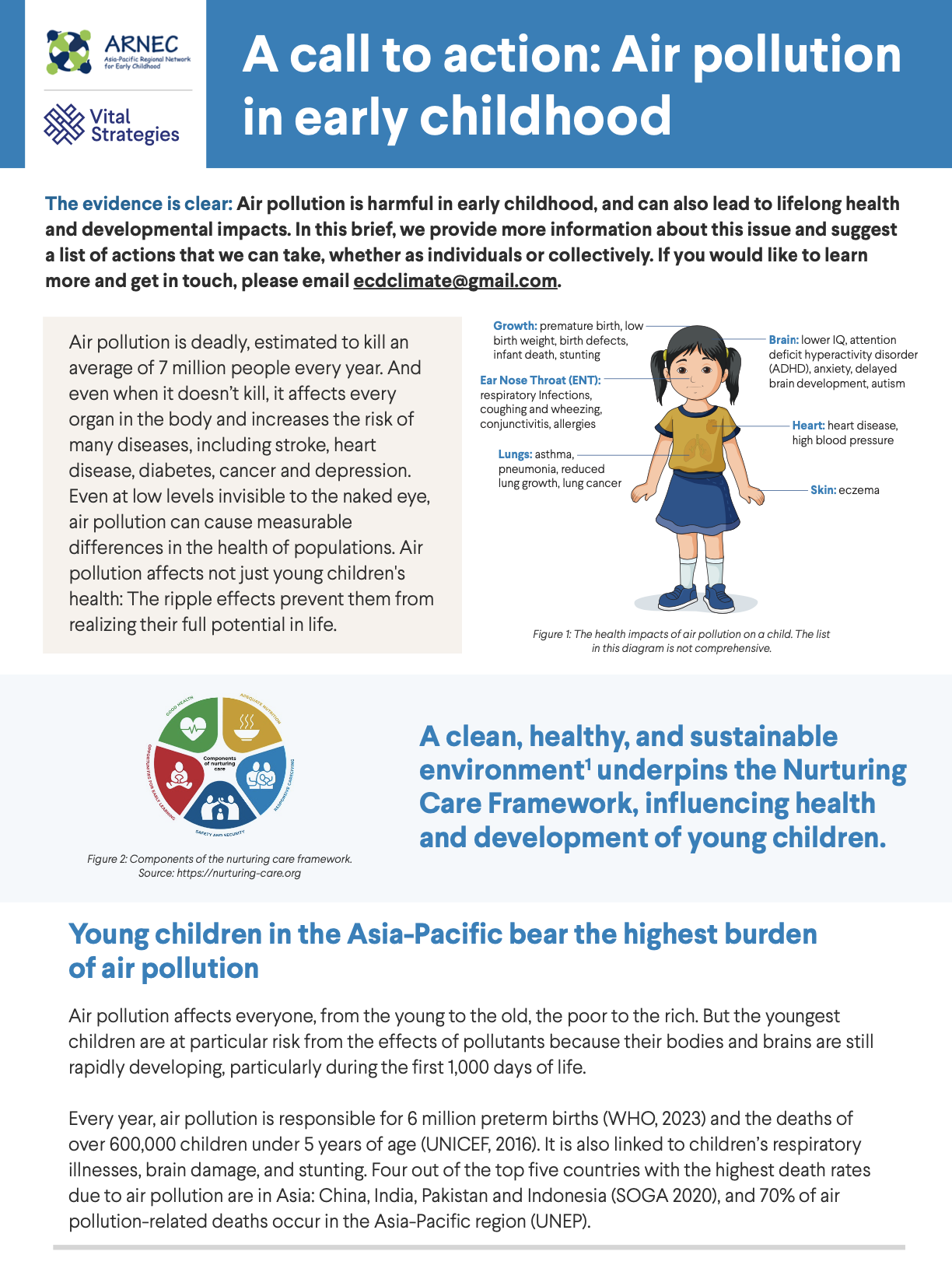Every year, air pollution is responsible for the deaths of over 600,000 children under 5 years of age (UNICEF, 2016). Air pollution is especially harmful to young children as their bodies and brains are still developing, and they lack the natural defence mechanisms to fend off harmful pollutants. They also breath up to five times faster than adults, and with every breath, take in more air per unit of body weight than adults. Exposure to air pollution in early childhood can lead to lifelong health and developmental impacts, including reduced lung capacity, stunting, lower IQ and depression.
Vital Strategies has partnered with the Asia-Pacific Regional Network for Early Childhood Development (ARNEC) to publish this advocacy brief to highlight the specific risk that air pollution poses to young children, and a list of actions that we can all take to reduce this risk.
This publication is the first in a series and part of a resource kit on Climate and Environmental threats on early childhood development. To learn more, please email ecdclimate@gmail.com
Download the full advocacy brief (10 pages)
Download the call-to-action only (2-pager)
Recent Abstracts
Testimonials: Personal stories that have the power to save lives on the road
Knowledge, Attitudes, and Practice Study on Lead Poisoning and Pollution in Indonesia
Improving Civil Registration and Vital Statistics Systems in French-Speaking Countries: Opportunities and Challenges
Strengthening the Civil Registration and Vital Statistics (CRVS) System in Colombia
Estimation of the direct and indirect costs attributable to alcohol consumption in Brazil
Guidance for Collection and Processing of Cause-of-Death Data in the Civil Registration and…
Vital Strategies: Reimagine Public Health
Public perceptions of emissions testing in Jakarta, Indonesia
Cost-Benefit Analysis for Air Pollution Control Strategies in Jakarta
Key Messages on Alcohol Harms and Policy Solutions
